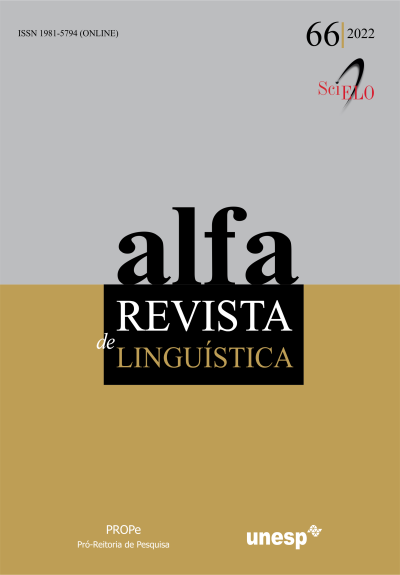Subsidies for a dictionary of toponyms
the record of motivation in constructing entries
DOI:
https://doi.org/10.1590/1981-5794-e15571Keywords:
Toponymy, lexicography, taxonomy, denominative causes, human featuresAbstract
The objective of this study is to provide contributions to the lexicographic treatment of toponyms, focusing on the production of a dictionary of toponyms for Mato Grosso do Sul. It is thus based on theoretical-methodological assumptions of Toponymy – Dick (1990a, 1990b, 1995, 2001, 2004), Dauzat (1947), Backheuser (1952) – and Lexicography – Biderman (1984), Krieger (2006), Porto Dapena (2002), Haensch; Omeñaca (2004). The corpus, made up of 85 names of districts subordinate to the 79 municipalities in the state, was extracted from the Data System of the ATEMS Project. Understanding that a dictionary of toponyms can contain linguistic and encyclopedic information to serve a diverse audience, the main focus of this article was the discussion of items that should make up the entries in this dictionary category, particularly those relating to human feature toponyms: taxonomy (DICK, 1990b) and denominative causes (DICK, 1990a, 1990b).The results highlighted that, among the taxonomy of the examined corpus, those of an anthropocultural nature stand out – especially those linked to religiosity and homage to people; while, when it comes to denominative causes, a significant trend of toponymic translation is seen (DICK, 2001), considering that many of the toponyms of the districts are also names of other physical or human geographic features in the same municipality.
Downloads
Downloads
Published
How to Cite
Issue
Section
License
Copyright (c) 2022 ALFA: Revista de Linguística

This work is licensed under a Creative Commons Attribution 4.0 International License.
Manuscripts accepted for publication and published are property of Alfa: Revista de Linguística. It is forbidden the full or partial submission of the manuscript to any other journal. Authors are solely responsible for the article's content. Translation into another language without written permission from the Editor advised by the Editorial Board is prohibited.

